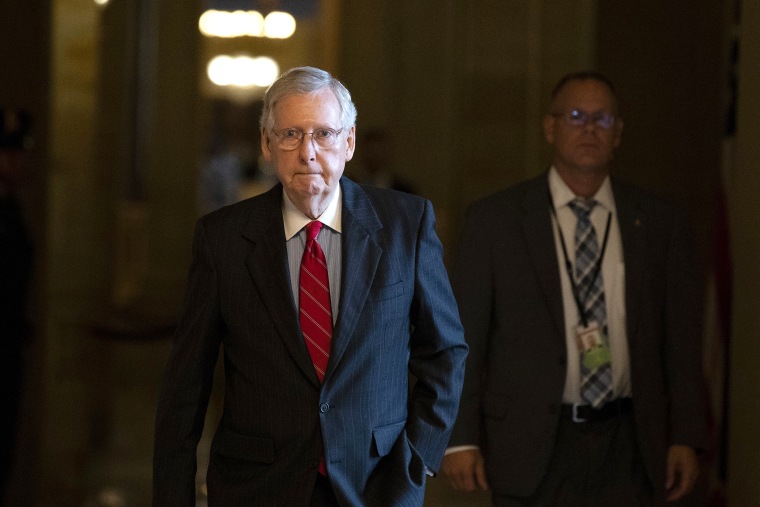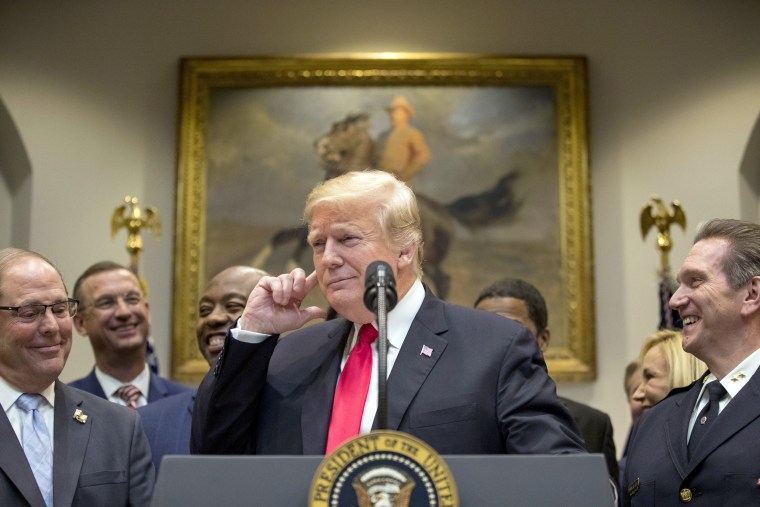There are no sure bets in this Congress, especially when it comes to the politically fraught issue of criminal justice reform.
But a rare coalition of lawmakers, activists, prosecutors and defense attorneys spanning the political spectrum believe they are on the cusp of a vote that would usher in the broadest set of changes to federal criminal statutes in a generation.
President Donald Trump backs the bill. So does Paul Ryan, speaker of the House. Republican opponents, including Sen. Ted Cruz of Texas, say they’ve been assuaged by changes that give less leniency to people with long criminal histories and those convicted of violent offenses. A dam seemed to break on Tuesday, when Senate Majority Leader Mitch McConnell, under pressure for weeks, agreed to bring the bill to the floor for a vote before Congress breaks for the holidays. It would then have to pass the House, which has already approved a more limited version.
Supporters say they’re confident that if the bill were put before lawmakers today, they’d have more than enough votes — as many as 80 in the Senate — for it to pass.
That’s a big if, however.

In a time of bitter partisan gridlock and high drama in the White House, supporters remain anxious that any number of things — negotiations over the border wall and a potential government shutdown, last-minute disagreements over amendments, delays in the vote, an unexpected scandal that diverts Washington's attention again — could derail their progress.
“We have a long way to go,” said Jason Pye, chief lobbyist for FreedomWorks, a conservative advocacy group, who has been pressuring lawmakers to back the bill.
“I don’t necessarily trust what’s going to happen,” added Inimai Chettiar, director of the left-leaning Brennan Center for Justice at New York University, another supporter.
“This is going to be a pretty epic floor battle,” said Holly Harris, head of the Justice Action Network, a bipartisan coalition that advocates for reform.
The bill, called the First Step Act, has been dragging around Congress for years in various forms, reshaped by concession and compromise. If passed, it would undo some of the harsh laws governing how America treats drug offenders and other criminals.
Trump’s mid-November endorsement of the First Step Act provided a surge of momentum to the bill’s supporters, who used it to pressure Republican lawmakers, including McConnell. Last week, the parent company of Fox News announced its support of the bill. That added to the momentum.
Kevin Ring, president of Families Against Mandatory Minimums, said the bill, while "incredibly modest," would still be "the most groundbreaking criminal justice reform at the federal level in 30 years."
"If we’re any kind of democracy," he added, "this should be law in a couple weeks.”
About 1.5 million Americans are imprisoned today, a number that has been declining in large part because of reforms adopted by states, whose prison systems hold the vast majority of convicted criminals. Those state-level reforms, many enacted by conservative Republicans, have coincided with falling crime rates — results that have been used by proponents of the First Step Act as proof they could work in the 180,000-inmate federal system.
The First Step Act targets changes to the front end of the system, when offenders are sentenced, as well as the back end, at the prisons where they serve the sentences.
The key sentencing changes include:
- Giving judges more leeway to diverge from strict mandatory minimum sentencing laws for nonviolent drug offenders with criminal histories — allowing about 2,000 offenders a year to receive shorter sentences than they currently would. Cruz and other conservative holdouts recently traded their support for an amendment to this provision that curtailed the use of this “safety valve” for people with long criminal histories.
- Making it more difficult for prosecutors to “stack” charges against gun offenders in order to seek 25-year mandatory minimum prison sentences for repeat offenders. About 60 offenders a year would receive shorter sentences.
- Eliminating the possibility of life without parole for “three strike” drug offenders, capping mandatory minimum sentences for them at 25 years. About 60 offenders a year would be affected by this provision, which also includes a reduction in mandatory minimum sentences for a second drug offense from 20 years to 15 years.
The changes that would affect current prisoners include:
- Making the Fair Sentencing Act of 2010, which lightened penalties for possession of crack cocaine, retroactive, meaning that about 3,000 prisoners who were sentenced before the 2010 law would become eligible for earlier release, some immediately.
- Adjusting how “good-time credits” are calculated for prisoners: Adding seven days per year behind bars would allow nearly 4,000 prisoners to leave prison earlier in the first year of the reforms.
- Expanding training and education programs, and giving participants an earlier shot at leaving prison for halfway houses and other supervised release programs. Conservatives have demanded, and received, several exceptions to this provision; the list includes convicted murderers, sex offenders, terrorists, spies, undocumented immigrants and people convicted of fentanyl-related crimes. That list may get longer.
Reform advocates wanted the First Step Act to go further, but they gave up a lot of goals — making more sentencing changes retroactive, for example — to collect more votes.

Among the most vocal holdouts is Sen. Tom Cotton, R-Ark., who has railed against the First Step Act as a “jailbreak” and argued that more types of crimes should be excluded from the provision allowing prisoners to leave earlier for other supervision programs. Some reformers fear that Cotton will demand more amendments after the bill reaches the Senate floor, gumming up the process and potentially spooking supporters on the left.
Other opponents include the National Sheriffs' Association and the National Association of U.S. Attorneys, which wield considerable influence among conservative lawmakers.
Supporters also worry about opponents taking advantage of Senate rules to delay the vote — or inserting the bill’s provisions into a spending bill, linking them to funding for Trump's border wall.
“Everybody is going to be gaming out every possible procedural scenario that could inhibit passage of this bill,” Harris said. “We’ll all be looking to shore up as many of these reluctant voters as possible.”
She said she was also concerned that some political controversy will distract Congress during the final push.
“What concerns me is the unknown and what could enter the space that is beyond our control,” Harris said.
The ground troops in support of the bill include former Virginia Attorney General Ken Cuccinelli II, who has been meeting with conservative Republicans to make the case for the First Step Act. He tells them to look at red states that have successfully implemented deeper changes. He mentions the money that would be saved by relying less on prisons. And he makes what he calls a “Christian conservative” appeal based on second chances and rehabilitation.
“So many of us really believe that no one is beyond redemption,” Cuccinelli said.
Mark Holden, general counsel for Koch Industries and leader of the company’s criminal justice reform efforts, said he's confident the First Step Act will pass this month and become law.
“But we’re not going to let up until it’s done and signed by the president, that’s for sure,” he said. “We’re not going to be complacent in any way.”

